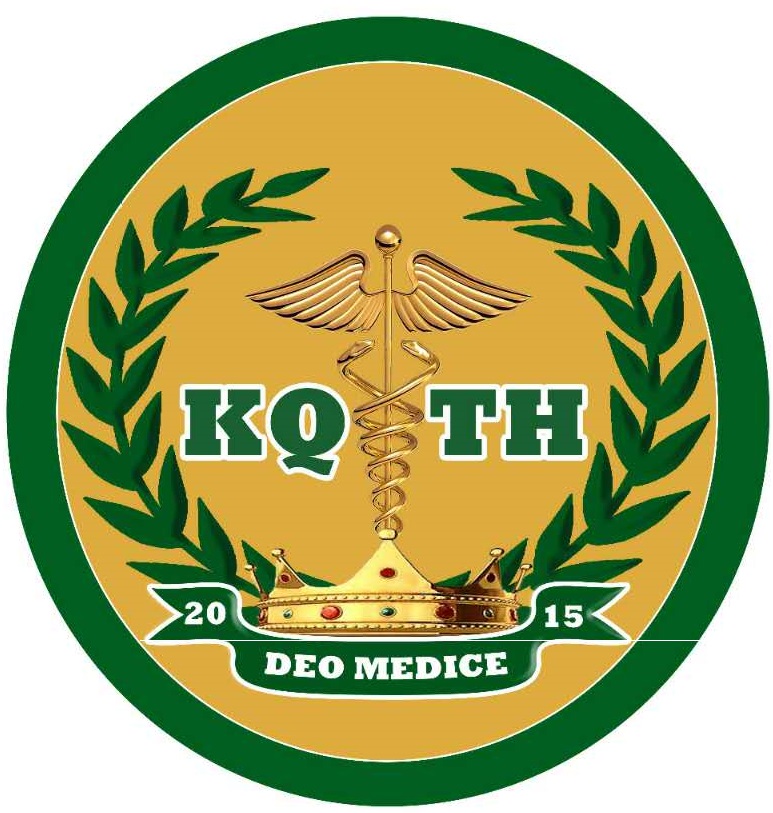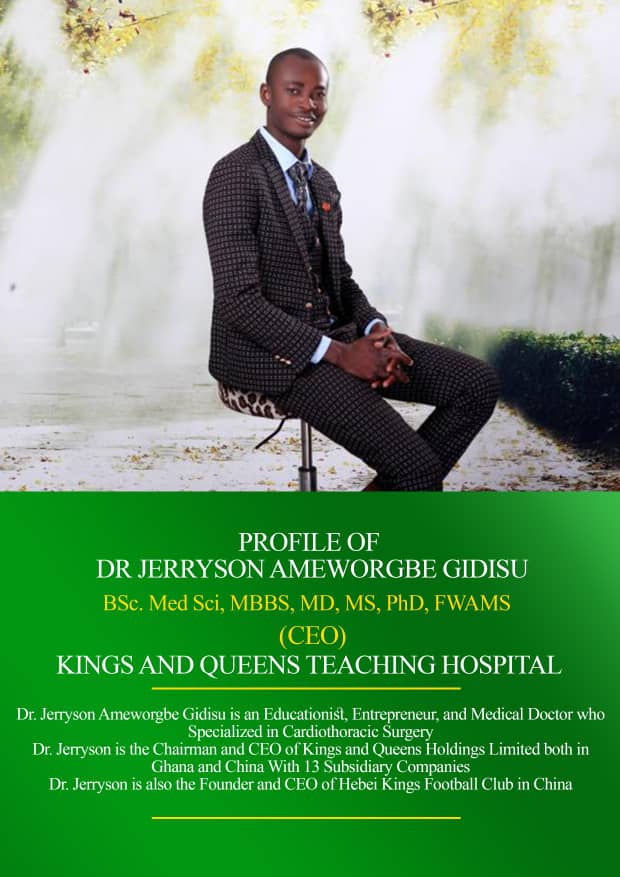Ulcerative colitis (Colitis ulcerosa, UC) is a form of inflammatory bowel disease (IBD). Ulcerative colitis is a form of colitis, a disease of the colon (the largest portion of the large intestine), that includes characteristic ulcers, or open sores. The main symptom of active disease is usually constant diarrhea mixed with blood, of gradual onset. IBD is often confused with irritable bowel syndrome (IBS). Ulcerative colitis shares much in common with Crohn's disease, another form of IBD, but Crohn's disease can affect the whole gastrointestinal tract while ulcerative colitis only attacks the large intestine, and while ulcerative colitis can be treated by performing a total colectomy Ulcerative colitis is normally continuous from the rectum up the colon. The disease is classified by the extent of involvement, depending on how far up the colon the disease extends: • Distal colitis, potentially treatable with enemas. • Proctitis: Involvement limited to the rectum. • Proctosigmoiditis: Involvement of the rectosigmoid colon, the portion of the colon adjacent to the rectum. • Left-sided colitis: Involvement of the descending colon, which runs along the patient's left side, up to the splenic flexure and the beginning of the transverse colon. • Extensive colitis, inflammation extending beyond the reach of enemas: • Pancolitis: Involvement of the entire colon, extending from the rectum to the cecum, beyond which the small intestine begins
Patient Care The number of visits to our Emergency Department continues to grow at an astounding rate. Our Emergency Medicine faculty provide continuous coverage of both the Kings & Queens Teaching Hospital Emergency Department. The volumes in the adult ED alone are now over 70,000 per year. We have responded by increasing coverage and now have as many as four licensed providers working simultaneously during peak hours. This is not counting our resident physicians or medical students who while supervised increase patient care even further. As always we are practicing with the most state-of-the-art equipment available as well as highly advanced specialists in every field of medicine. Unlike non-teaching facilities we are able to provide a specialist in virtually any field to the bedside 24/7, every day of the year. We have worked cooperatively with our expert Trauma Surgeons for many years and have an extremely efficient unit for treating trauma. We have bedside ultrasound and a high-speed 128-slice CT scanner physically located in the ED – scans are fast and highly accurate. Our goal which is met in the vast majority of traumas is a disposition on any patient within 20 minutes of arrival. In the same cooperative model established with Surgery, we have worked additionally with our Cardiology and Neurology colleagues and established incredibly fast response times for our acute chest pain and stroke patients. We established a special heart attack or STEMI alert with Cardiology and cath lab personnel and working additionally and their ability to send us an EKG from the field we are obtaining record door-to-cath lab times. Our goal is to have this happen under 90 minutes and we have been successful more than 90% of the time since the rapid-response process was initiated. Couple this with our expert Cardiologists (we train those practicing at other facilities), our heart care is second to none. Similarly working with Neurology and Neurosurgery, we developed a “Brain Attack Team” which has it’s goal of a team of specialists at the bedside in 15 minutes or less in response to a possible stroke or bleeding in the brain. Combined with unparalleled expertise in both Neuroradiology and Interventional Neuroradiology we offer the absolute best care available for potentially catastrophic neurologic events. In addressing every day patients with the most intricate and exotic medical problems, and by constantly interacting with multiple highly advanced specialists and leaders in their field, the staff of Kings & Queens Teaching Hospital’s Emergency Department carries a level of experience and knowledge that can’t be found elsewhere in Ghana and West Africa. Add to this our unique diagnostic capabilities and specialists, and you have the best Emergency care available in the area.
Female Pelvic Medicine & Reconstructive Surgery Kings & Queens Teaching Hospital is pleased to outline the Female Pelvic Medicine & Reconstruction Surgery Program (Urogynecology) with an outpatient and general gynecology. We have board certified Obstetrician Gynecologist with a specialty in Female Pelvic Medicine & Reconstructive Surgery. Patient Care Services: • Urinary Incontinence • Painful bladder syndrome/interstitial cystitis • Overactive bladder • Nocturia • Recurrent urinary tract infections • Pelvic organ prolapse • Cystocele (fallen bladder) • Rectocele • Uterine prolapse • Vaginal vault prolapse Latest technologies: • In-office cystoscopy and urodynamic evaluation • In-office injectable therapy for stress urinary incontinence • Non mesh surgical reconstruction • Minimally invasive sling surgery to correct stress incontinence.
Genitourinary Cancer Program Each year, thousands of patients seek diagnosis and treatment from Kings & Queens Teaching Hospital Genitourinary Cancer Program, which is comprised of faculty from Kings & Queens Teaching Hospital's Department of Urology, Department of Radiation Oncology and Department of Medicine. We are among the Ghana’s premier institutions for treating genitourinary cancers. Our Genitourinary Cancer Program focuses on: • Prostate Cancer • Bladder Cancer • Kidney Cancer • Adrenal Cancer • Penile Cancer • Testicular Cancer Many of our physicians are published experts who have achieved national and international recognition for their pioneering approaches. From the most advanced minimally invasive surgical techniques, to up-to-the-minute research, we offer Ghana and West Africa residents the finest care and hope for the defeat of genitourinary cancers.
As an integral part of the Kings & Queens Teaching Hospital, the Department of Urology strives to provide excellence in patient care, teaching and research within the specialty of pediatric and adult urology. We are dedicated to providing state-of-the-art care within a compassionate and caring environment. Our medical team focuses on providing the best possible care for individuals experiencing such illnesses as prostate cancer, bladder cancer, adrenal cancer, kidney disease and stones, testicular cancer, female and pediatric urological conditions, impotence and infertility, urinary tract infections, incontinence and bladder dysfunction. We offer consultation, diagnosis, and treatment for all urologic diseases in male and female patients of all ages. Because each individual’s health care needs are unique, every patient has an individualized plan of care. We combine compassion and respect with the very best in medical and surgical care. This approach coupled with the expertise of our board-certified physicians and dedicated staff enables the department to be a leading provider of urological health care in the state and the region. Patient Services Whether you are a new or returning patient, we welcome your visit. We are easily accessible and equipped to handle your needs. We specialize in both adult and pediatric urology. In fact, we offer consultation, diagnosis, and treatment for all malignant urologic diseases in male and female patients of all ages. Because each individual who seeks our help is unique and has special needs, every patient has an individualized care plan. We combine compassion and respect with the very best in medical and surgical care. This approach coupled with the expertise of our board-certified physicians and dedicated staff enables the department to be a leader in the state and the region. We have special interest in caring for the following: Prostate Cancer Bladder Cancer Adrenal Cancer Kidney Cancer Testicular Cancer Kidney disease/stones Female Urology Incontinence - Bladder & Pelvic Health Program Pedatric Urology Inpotence/Infertility Da Vinci Robotic Procedudres Our Team Each of our faculty members and attending doctors have had specialty training in urology. All doctors are board certified. This sub-specialization enables our doctors to become experts on particular conditions and treatments, and it allows them to provide the most advanced and appropriate care available for each patient.
Pediatric Urology The Kings & Queens Medical University College & (Kings & Queens Teaching Hospital) Children’s Department has been serving the children of Ghana and West Africa and the surrounding areas since its opening. Pediatric Urology, as a subspecialty of the Kings & Queens Teaching Hospital Department of Urology, provides child-centered care to pediatric patients with urologic issues. These issues involve both medical and surgical management of genito-urinary issues for males and females. To treat these urological conditions, Kings & Queens Teaching Hospital’s pediatric urologists offer a comprehensive selection of services from pre-natal consultations, inpatient and outpatient consultation services, and both inpatient and outpatient surgical procedures. Our Services Robotic Surgery With a current faculty of pediatric urologists, Kings & Queens Teaching Hospital now has pediatric urologists who are robot and laparoscopically trained. Kings & Queens Teaching Hospital Pediatric Urology offers the complete spectrum of minimally invasive surgery and is now performing advanced laparoscopic and robotic reconstructive procedures. Bladder Exstrophy The Bladder Exstrophy team is headed up by pediatric urology specialists. Spinal Bifida Kings & Queens Teaching Hospital's spinal bifida clinic seeks to make things easier for parents and their children by providing comprehensive care in the form of the most advanced urological care with a dedicated pediatric video-urodynamic suite and the latest in radiographic imaging. Prenatal Evaluation In our prenatal urology evaluation program, dedicated pediatric urologists with an expertise in the care of these children are here At Kings & Queens Teaching Hospital to educated an expecting family , help guide you through the remainder of pregnancy and establish a plan for your child after delivery. Kidney Stone With a current faculty of three pediatric urologists and three pediatric nephrologists, Kings & Queens Teaching Hospital offers the complete spectrum of medical and surgical therapy for stone disease. Basic Science Research The Kings & Queens Teaching Hospital Pediatric Urology Service seeks not only to provide the best medical care to our patients but also to advance the frontiers of medical science through basic science research that has potential to benefit children everywhere. Voiding Improvement Program Through comprehensive assessments and patient-specific plans, the voiding improvement program aims to improve not only a child’s voiding dysfunction, but their quality of life.
Gynecologic Cancer Program Over 400 new patients will come to the Gynecologic Cancer Program at Kings & Queens Teaching Hospital Cancer Center this year. With Ghana and West Africa ranked ninth in the nation in cervical cancer deaths, our advanced diagnostics and treatments are a source of hope to thousands of women each year. As Ghana and West Africa's only National Cancer Institute-designated cancer center, Kings & Queens Teaching Hospital Cancer Center offers patients access to the most advanced gynecologic cancer research and clinical trials. Our program offers gynecologic oncologists with nationally renowned radiation oncologists, ovarian cancer specialists and gynecologic pathologists. We are indeed proud to be ranked nationally once again as a top hospital for treatment of gynecologic disorders. Our program encompasses all aspects of diagnosis, surgery, treatment and management of: • Cervical cancer • Endometrial cancer • Ovarian cancer • Uterine cancer • Vulvar cancer Search for one of our prestigious oncologists and ovarian cancer specialists now. Endometrial Cancer Endometrial Cancer Symptoms and Risk Factors Endometrial cancer (uterine cancer) is the most common gynecologic cancer that occurs in the United States; and arises from abnormal cells that develop within the inside lining of the uterus. It occurs most often after menopause, but may also be diagnosed before menopause. Uterine cancer facts • The uterus is a hollow organ in females located in the pelvis, commonly called the womb. The uterus functions to support fetal development until birth. The uterus is shaped like an upside down pear; the top is the fundus, the middle is the corpus, and bottom is the cervix. • Uterine cancer is the abnormal (malignant) growth of any cells that comprise uterine tissue. • Although the exact causes of uterine cancers are not known, risk factors include women with endometrial overgrowth (hyperplasia), obesity, women who have never had children, menses beginning before age 12, menopause after age 55, estrogen therapy, taking tamoxifen, radiation to the pelvis, family history of uterine cancer, and Lynch syndrome (most commonly seen as a form of inherited colorectal cancer). • Common signs and symptoms of uterine cancer are abnormal vaginal bleeding or discharge, pain with urination and sex, and pelvic pains. • Uterine cancer is diagnosed usually with a pelvic exam, ultrasound, and biopsy. • Uterine cancer stages (0 to IV) are determined by biopsy, chest X-ray, and/or CT or MRI scans. • Treatment options may include one or more of the following: surgery, radiation, hormone therapy, and chemotherapy. Treatment depends on the cancer stage with stage IV as the most extensive and usually caused by the most aggressive type of cancer cells. • Surgical therapy usually involves removal of the uterus, ovaries, fallopian tubes, adjacent lymph nodes, and part of the vagina. • Radiation therapy may be by external radiation or by internal radiation (brachytherapy). • Chemotherapy usually requires IV administration of drugs designed to kill cancer cells. • Hormone therapy (usually progesterone) is used on cancer cells that require another hormone (estrogen) for growth. • Second opinions can be obtained by referrals made by your doctor to others in the local medical society, or to other doctors elsewhere. • Follow-up care is important. Complications can be treated early and possible cancer recurrence can be diagnosed early.
Uterine Fibroids - Symptoms Uterine fibroid symptoms can develop slowly over several years or rapidly over several months. Most women with uterine fibroids have mild symptoms or none at all and never need treatment. For some women, uterine fibroid symptoms become a problem. Pain and heavy menstrual bleeding are the most common symptoms. In some cases, difficulty becoming pregnant is the first sign of fibroids. The type of symptoms women have can depend on where the fibroid is located in the uterus. Uterine fibroid symptoms and problems include: • Abnormal menstrual bleeding, such as: • Heavier, prolonged periods that can cause anemia. • Painful periods. • Spotting before or after periods. • Bleeding between periods. • Pelvic pain and pressure, such as: • Pain in the abdomen, pelvis, or low back. • Pain during sexual intercourse. • Bloating and feelings of abdominal pressure. • Urinary problems, such as: • Frequent urination. • Leakage of urine (urinary incontinence). • Kidney blockage following ureter blockage (rare). • Other symptoms, such as: • Difficulty or pain with bowel movements. • Infertility. Sometimes, fibroids make it difficult to become pregnant. • Problems with pregnancy, such as placental abruption and premature labor. • Miscarriage


